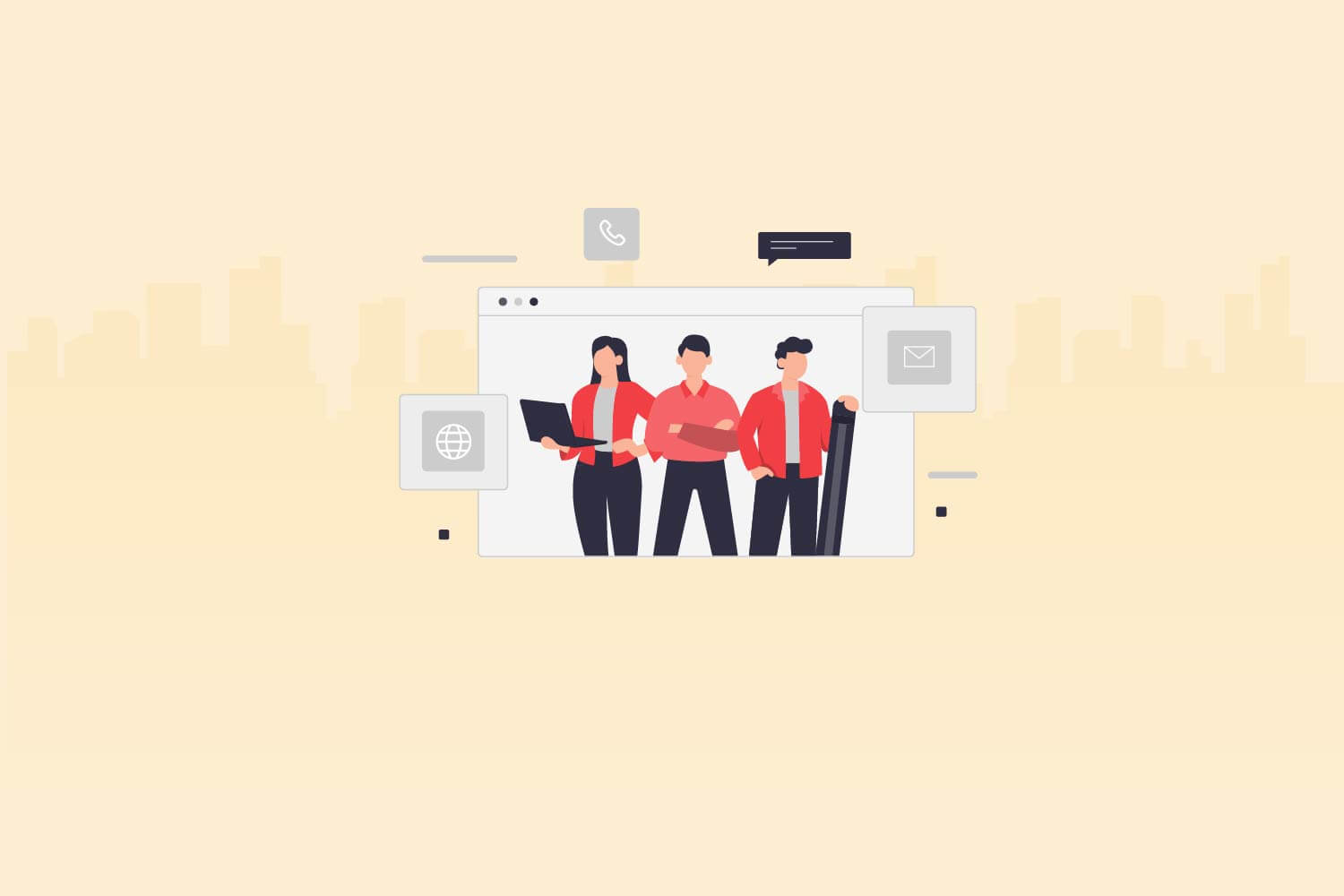In the rapidly evolving landscape of work, the concept of compensation and benefits is undergoing a profound transformation. As we look towards the future of work, marked by technological advancements, shifting employee expectations, and a growing emphasis on flexibility, it becomes crucial for organizations to reimagine how they approach compensation and benefits.
The World Economic Forum predicts that by 2025, more than half of all workplace tasks will be performed by machines or algorithms, necessitating a shift in compensation structures and benefits to accommodate evolving roles.
This article delves into the emerging trends that are shaping the future of compensation and benefits, focusing on how these pivotal aspects are being redefined to align with the changing dynamics of the modern workplace.
The evolving landscape of compensation and benefits in the future of work
The world of work is undergoing a profound transformation, driven by technological advancements, changing employee expectations, and the reimagining of traditional workplace structures. In this dynamic environment, the concept of compensation and benefits is taking on new dimensions as organizations recognize the need to adapt to the evolving needs of their workforce. The future of work is not just about where and when work is done, but also about how employees are compensated and supported.
Gone are the days when compensation solely referred to a fixed salary and benefits were limited to healthcare coverage. The future of work demands a more flexible and individualized approach to compensation and benefits, tailored to the diverse needs of employees. Companies are realizing that a one-size-fits-all approach no longer suffices in attracting, retaining, and motivating their talent.
As the traditional boundaries of work continue to blur, compensation is extending beyond financial remuneration. Organizations are exploring innovative ways to reward their employees, such as performance-based incentives, stock options, and skill-based pay. At the same time, benefits are expanding to encompass not only health and wellness programs but also opportunities for continuous learning, remote work arrangements, and a healthy work-life balance.
In this ever-evolving landscape, companies are challenged to strike a delicate balance between staying competitive in the talent market and managing their bottom line. The future of work demands a forward-thinking approach to compensation and benefits that aligns with the values and expectations of a diverse and agile workforce. As we navigate these changes, it’s clear that the evolution of compensation and benefits will play a pivotal role in shaping the future of work for both employees and employers.
Flexible compensation and benefits packages
In the rapidly changing landscape of the future of work, the traditional 9-to-5 office model is giving way to a more flexible and adaptable approach. As organizations transition to hybrid or fully remote work environments, the concept of flexibility extends beyond just work hours and location—it also encompasses how compensation and benefits are structured.
Flexible compensation and benefits packages are emerging as a cornerstone of progressive workplace strategies. Companies are recognizing that employees have unique needs and preferences, and a one-size-fits-all approach to compensation and benefits no longer meets the diverse demands of the workforce.
With the rise of the gig economy and freelancing, companies are designing compensation packages that cater to different working arrangements. This might involve offering hourly or project-based pay for freelancers, part-time employees, or those on flexible schedules. Moreover, the traditional annual salary review is being complemented by real-time performance-based rewards, allowing employees to see a direct correlation between their efforts and compensation.
Benefits, too, are taking a flexible turn. Rather than offering a standardized benefits package, organizations are providing employees with a menu of options to choose from, allowing them to tailor their benefits to their individual needs. This could include selecting from a range of healthcare plans, wellness initiatives, professional development opportunities, and more.
As organizations embrace flexibility in their compensation and benefits strategies, they are not only better equipped to attract and retain top talent, but they also foster an environment of trust and empowerment. By acknowledging that employees have different life circumstances and priorities, companies are sending a clear message that they value their workforce’s well-being and are committed to adapting to the changing needs of the future of work.
Customizing compensation and benefits
In an era marked by technological innovation, the way we approach compensation and benefits is undergoing a revolutionary shift. The future of work is characterized by a data-driven approach that allows organizations to personalize their offerings, catering to the unique needs and preferences of each employee.
Advancements in data analytics and artificial intelligence are enabling companies to delve deep into employee data, gaining insights that drive the customization of compensation and benefits. This personalization goes beyond the generic one-size-fits-all model, ensuring that each employee’s compensation package aligns with their performance, skills, and contributions to the organization.
Personalized compensation might involve dynamic pay scales that adjust in real-time based on an employee’s achievements and market trends. Additionally, benefits customization considers factors such as an employee’s life stage, health conditions, and personal goals. For instance, a young professional might prioritize career growth and educational opportunities, while an employee with a family might place greater emphasis on healthcare and family-friendly policies.
This tech-driven personalization not only enhances employee satisfaction but also empowers them to make informed decisions about their careers and well-being. However, as organizations harness the power of data, it’s crucial to maintain transparent communication and ensure data privacy to build trust among employees.
As we navigate this rapidly evolving landscape, it’s evident that customization powered by technology will play a pivotal role in shaping the future of work. By recognizing that each employee is a unique individual with distinct needs, companies can create an environment that fosters engagement, loyalty, and a sense of belonging—crucial elements for success in the dynamic world of the future of work.
The rise of non-financial benefits
As the future of work continues to unfold, a fundamental shift is taking place in how organizations view and provide benefits to their employees. While salary remains an essential component of compensation, companies are recognizing the growing importance of non-financial benefits in attracting and retaining a talented workforce.
Non-financial benefits encompass a wide array of offerings that go beyond monetary compensation. These benefits acknowledge that employees are seeking more than just a paycheck; they desire a holistic work experience that promotes their well-being, growth, and work-life balance.
Wellness programs, for instance, are gaining prominence as organizations prioritize the physical and mental health of their employees. From gym memberships and mindfulness workshops to counseling services, wellness initiatives foster a culture of self-care and stress reduction.
Moreover, professional development opportunities have emerged as a key non-financial benefit. In the rapidly evolving landscape of the future of work, employees value continuous learning and skill enhancement. Companies that invest in training, workshops, and certifications send a clear message that they are committed to their employees’ growth and long-term career prospects.
The demand for flexibility in work arrangements has also led to the rise of remote work options as a sought-after non-financial benefit. The ability to work from home or choose flexible hours enables employees to better manage their personal and professional lives, ultimately enhancing job satisfaction.
As non-financial benefits become integral to the employee value proposition, organizations are creating a more engaging and supportive work environment. By offering a diverse range of benefits that address various aspects of employees’ lives, companies not only attract top talent but also foster a sense of loyalty and dedication. In this way, the rise of non-financial benefits is redefining the traditional compensation package and shaping the very essence of the future of work.
Compensation and benefits for virtual teams
The concept of work has undergone a remarkable transformation with the proliferation of remote work arrangements. As the future of work unfolds, organizations are grappling with the challenges and opportunities presented by remote teams, not only in terms of operations but also in the realm of compensation and benefits.
Remote work introduces a paradigm shift in the way compensation is structured. Traditional geographical boundaries are becoming less relevant as companies hire talent from across the globe. Compensation packages now need to account for varying costs of living, currency differences, and local regulations. Striking the right balance between providing competitive compensation and adhering to local standards is a delicate challenge that companies must navigate.
In the realm of benefits, remote teams require innovative solutions that ensure their well-being and engagement. Health and wellness benefits take on added importance, as remote employees may lack access to on-site amenities. Offering virtual wellness programs, mental health support, and resources for maintaining a healthy work-life balance becomes essential to foster a sense of belonging and care.
Additionally, remote work often blurs the lines between work and personal life. This calls for benefits that promote boundaries, such as stipends for home office setup, ergonomic equipment, and flexible hours that accommodate different time zones. Furthermore, initiatives to combat isolation and enhance virtual collaboration contribute to building a strong remote work culture.
As organizations adapt to remote work dynamics, it’s crucial to ensure that remote employees feel valued and supported through their compensation and benefits packages. Striving for fairness, inclusivity, and flexibility in these offerings not only enhances employee satisfaction but also positions companies to harness the full potential of the remote work revolution in the future of work.
Informed decision-making for compensation and benefits
In the era of digital transformation, data has emerged as a powerful driver of strategic decision-making across industries, and the realm of compensation and benefits is no exception. As we navigate the complex landscape of the future of work, data analytics is taking center stage, providing organizations with insights that enable them to craft more informed and effective compensation and benefits strategies.
Data analytics offers a multifaceted approach to understanding employee preferences, market trends, and organizational performance. By analyzing employee data, companies can identify patterns in compensation satisfaction, helping them tailor packages that resonate with individual needs. Moreover, market benchmarks derived from data analysis ensure that compensation remains competitive and aligned with industry standards.
Benefits utilization data provides valuable insights into the effectiveness of current offerings, allowing organizations to refine their benefits packages based on employee usage and feedback. For instance, if a wellness program is underutilized, data can guide adjustments to make it more appealing and relevant to employees.
Data-driven decision-making is particularly advantageous in predicting future workforce trends. Analyzing turnover rates, employee engagement metrics, and career progression patterns enables organizations to anticipate areas where adjustments to compensation and benefits are needed, ultimately fostering retention and growth.
However, it’s essential to tread carefully with data privacy and ethical considerations. Transparent communication about data usage and protection is paramount to maintain trust among employees.
As organizations harness the power of data analytics, they gain a competitive edge in designing compensation and benefits strategies that not only attract and retain top talent but also contribute to a culture of data-driven innovation. In the ever-evolving landscape of the future of work, data-driven decision-making is a key enabler of success in creating tailored and impactful compensation and benefits programs.
Compensation and benefits as a diversity tool
In the pursuit of a more equitable and inclusive workplace, the future of work demands a critical examination of how compensation and benefits are structured. Organizations are recognizing the pivotal role that these elements play in addressing disparities and fostering diversity among their workforce.
Compensation disparities have long been a concern, with underrepresented groups often experiencing pay gaps. To promote equity, companies are leveraging data analytics to identify pay discrepancies and rectify them. Moreover, transparent and standardized pay structures are being implemented to ensure that biases are eliminated from the compensation process.
Benefits are also undergoing a transformation to address the diverse needs of employees. Inclusive benefits packages consider factors such as family situations, cultural backgrounds, and individual requirements. Parental leave policies, flexible work arrangements, and wellness initiatives are designed with inclusivity in mind, accommodating the various ways in which employees experience work and life.
Beyond addressing financial aspects, companies are using compensation and benefits as a tool to create a sense of belonging. Employee resource groups, mentorship programs, and career development initiatives specifically aimed at underrepresented groups contribute to an inclusive environment that values diversity.
However, achieving equity and inclusion is an ongoing journey. Companies must continuously evaluate and adapt their compensation and benefits strategies to reflect changing societal norms and expectations. Open dialogue, active listening, and a commitment to diversity are essential to ensuring that compensation and benefits serve as catalysts for a more inclusive future of work.
In a world that celebrates diversity, organizations that prioritize equitable compensation and inclusive benefits not only foster a harmonious workplace but also attract a diverse pool of talent that drives innovation and success. As we navigate the future of work, this commitment to equity and inclusion through compensation and benefits will remain a cornerstone of progressive organizational strategies.
Regulatory and ethical considerations in future compensation and benefits
As the future of work takes shape, organizations are faced with a complex landscape of evolving regulations and ethical considerations surrounding compensation and benefits. Navigating this terrain is crucial to ensure that companies not only remain compliant with the law but also uphold their ethical responsibilities towards their workforce.
Regulations surrounding compensation are dynamic and can vary across industries and regions. From minimum wage laws to equal pay mandates, organizations must stay up-to-date with changes to avoid legal pitfalls. Additionally, as remote work becomes more prevalent, companies may find themselves dealing with cross-border employment regulations that require careful attention to ensure proper compensation.
Ethical considerations in compensation and benefits extend beyond legal compliance. Companies are increasingly scrutinized for their practices, and stakeholders demand transparency and fairness. Ethical concerns may revolve around executive pay ratios, gender and diversity disparities in compensation, and the use of data in decision-making. Addressing these concerns is not only a moral imperative but also vital for maintaining a positive reputation and employee trust.
Furthermore, ethical considerations extend to benefits offerings. Companies must ensure that the benefits provided align with their values and contribute to the well-being of employees. Sustainability initiatives, such as environmentally friendly commuting options or eco-friendly benefits, are becoming part of the ethical discussion.
In this intricate landscape, organizations need to foster a culture of compliance and ethical responsibility. This involves regular reviews of compensation practices, transparent communication with employees about the rationale behind compensation decisions, and active engagement with stakeholders to address concerns.
The future of work demands that organizations navigate not only the complexities of compensation and benefits but also the regulatory and ethical nuances associated with them. By staying informed, transparent, and committed to fairness, organizations can uphold their obligations while fostering a workplace that is not only legally compliant but also ethically responsible in its treatment of employees.
Conclusion
The future of work brings with it a wave of transformative changes, and compensation and benefits are no exception. Embracing flexibility, personalization, and holistic well-being, organizations are recalibrating their strategies to ensure they remain attractive to top talent while fostering a culture of inclusivity and equity.
As technology continues to empower data-driven decision-making and remote work becomes the norm, the traditional notions of compensation and benefits are being replaced by innovative, employee-centric approaches. By staying attuned to these trends and adapting their strategies accordingly, organizations can position themselves at the forefront of the future of work, ensuring the well-being and success of both their employees and their business endeavors.
Testlify offers a range of assessments and challenges that allow you to gauge candidates’ knowledge, problem-solving skills, and creativity in real-world scenarios. With our extensive test library, you can objectively evaluate candidates’ abilities, ensuring you shortlist the most talented individuals efficiently. Ready to unlock the potential of your hiring process with our talent assessment tool? Book a free 30-minute live demo with Testlify. Our expert team will guide you through the platform, showcasing relevant skill tests tailored to your organization’s needs. With our support, you can streamline candidate selection, saving valuable time and resources.







